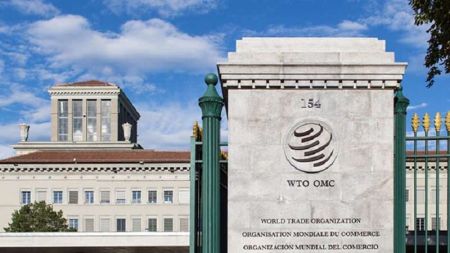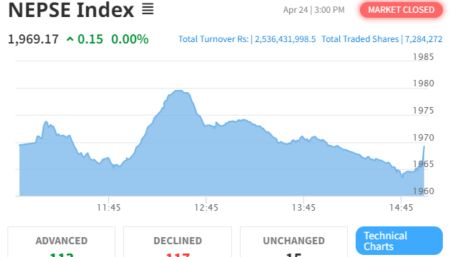The Nepal Stock Exchange (NEPSE) index plunged to five-year low in the last week of March. There are no convincing sign of its recovery on the sight. The gloom is pervasive despite the fact that several concerned agencies are seemingly keen to revive the secondary market. The NEPSE created a separate Central Depository Company (CDC) for an automated settlement of the transactions. No sooner NEPSE sought an operating approval for CDC from its regulator Security Board of Nepal (SEBON), the latter not only acknowledged its application but also brought out a press release highlighting the importance of CDC, understandably, to boost the investors psychology.
Nepal Rastra Bank (NRB) also issued new, fairly flexible directives to the banks regarding their investment in the mutual funds. The central banks marginally softened approach on margin lending should also have contributed positively to NEPSE growth. But none of these steps has actually worked. Why? Within the answer of this big why perhaps lies the solution to the alarming plummet of NEPSE too.
.jpg)
First, there appears to be a clear lack of co-ordination among three key agencies, the NEPSE, SEBON and the NRB. The lack of such co-ordination between the NEPSE and SEBON surfaced recently in the issue of providing training to the newly selected brokers. When new brokers join in the trade, an increase in the new investment could be expected. This unnecessary loggerhead between these two institutions not only distracted investors but also discouraged those aspiring to be new brokers. For this reason, only a few out of the 34 finally selected brokers have obtained the LoI, so far.
Similarly, while issuing the mutual fund directives, the NRB and SEBON apparently didn't have adequate joint exercise. Had they collaborated, the directives could have been more comprehensive covering not only the banks and financial institutions but also all potential investors in the economy. Above all, misunderstandings, primarily owing to their political loyalty among the top officials of these crucial agencies and also with the Finance Ministry are also reported. These are the kind of aversions which could have been easily avoided and must be done rather sooner than later.
To begin with, such co-ordination could initiate by resolving the training row of the new brokers. Despite highly bearish market, persistent political uncertainty and industrial unrest, these new brokerage companies have come forward to trade. They must not be discouraged by the feud between two public agencies.
Even more important is: the regulating and operating agencies must stop adopting fragmented approaches both in issuing directives and implementing them. And, all concerned must understand that no bureaucratic action alone would be enough to resurrect the investment psyche without building an overall confidence. This confidence will only stem out of convincingly business friendly political climate.





















